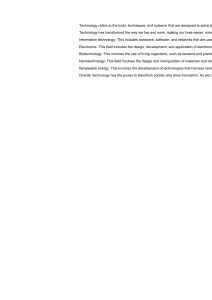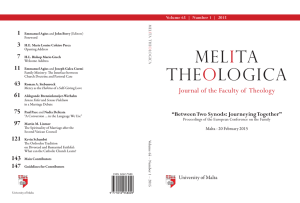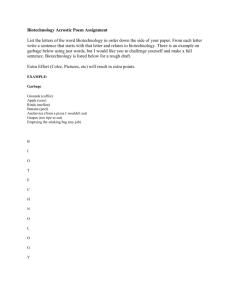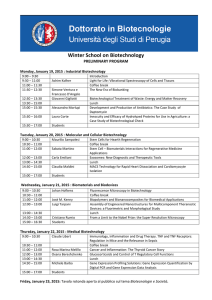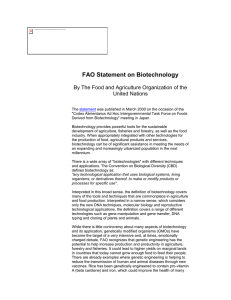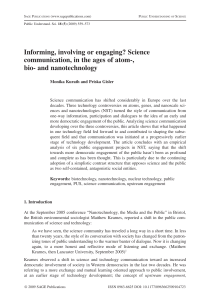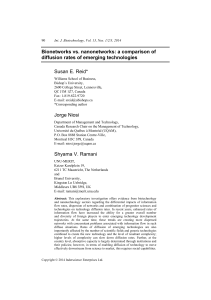S Human Dignity in European Public Policy on Biotechnology * Emmanuel Agius
advertisement
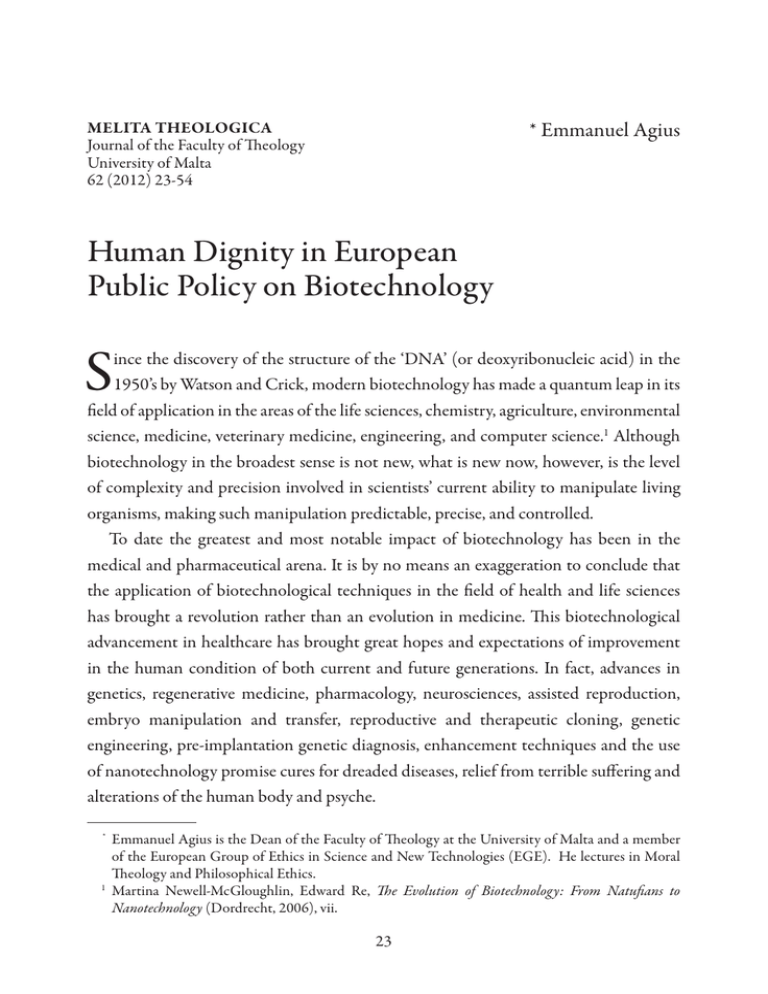
* Emmanuel Agius Melita Theologica Journal of the Faculty of Theology University of Malta 62 (2012) 23-54 Human Dignity in European Public Policy on Biotechnology S ince the discovery of the structure of the ‘DNA’ (or deoxyribonucleic acid) in the 1950’s by Watson and Crick, modern biotechnology has made a quantum leap in its field of application in the areas of the life sciences, chemistry, agriculture, environmental science, medicine, veterinary medicine, engineering, and computer science.1 Although biotechnology in the broadest sense is not new, what is new now, however, is the level of complexity and precision involved in scientists’ current ability to manipulate living organisms, making such manipulation predictable, precise, and controlled. To date the greatest and most notable impact of biotechnology has been in the medical and pharmaceutical arena. It is by no means an exaggeration to conclude that the application of biotechnological techniques in the field of health and life sciences has brought a revolution rather than an evolution in medicine. This biotechnological advancement in healthcare has brought great hopes and expectations of improvement in the human condition of both current and future generations. In fact, advances in genetics, regenerative medicine, pharmacology, neurosciences, assisted reproduction, embryo manipulation and transfer, reproductive and therapeutic cloning, genetic engineering, pre-implantation genetic diagnosis, enhancement techniques and the use of nanotechnology promise cures for dreaded diseases, relief from terrible suffering and alterations of the human body and psyche. Emmanuel Agius is the Dean of the Faculty of Theology at the University of Malta and a member of the European Group of Ethics in Science and New Technologies (EGE). He lectures in Moral Theology and Philosophical Ethics. 1 Martina Newell-McGloughlin, Edward Re, The Evolution of Biotechnology: From Natufians to Nanotechnology (Dordrecht, 2006), vii. * 23
